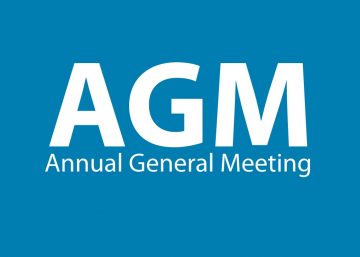| Objects | The objects of the Institute of Town Planners, Sri Lanka as prescribed by the Institute of Town Planners, Sri Lanka (Incorporation) Act No. 23 of1986 is to advance the science and art of Town planning in all its aspects (including local, regional, and national planning) for the benefit of the public. A member of the Institute is governed by the said Act, by the Byelaws and Regulations made thereunder, and by this Code of conduct. | |
| Duty of a member to the Profession | A member shall conduct him/her self in such a manner as to uphold the reputation of the Institute and of the planning profession and in no way to prejudice his/her own professional status as one who provides services related primarily to his/ her professional training and experience with remuneration related strictly to those services in accordance with personal integrity. Without prejudice to the generality or this statement, applicable as a standard of conduct to members, whether in the public service or private consultancy, academic employment, or whatever capacity engaged as planners, the undermentioned numbered clauses spell out in more detail the requirements of this code. Any case of alleged unprofessional conduct, which is not specifically covered by those clauses, will be dealt with having regard to the particular circumstances of the case. The provisions of this code shall apply notwithstanding any permission or agreement to the contrary by or with the client or body employing or consulting the member.In this code, the term ‘member’, means every corporate member of the Institute, and also, where appropriate, every non-corporate member and every student member of the Institute. | |
| Words imparting the singular number shall include the plural number and vice – versa. Words imparting the masculine gender shall include the feminine gender. | ||
| Conflict with profession | 1. | A member must not hold, assume, accept or retain a position in which his interest is in conflict with his professional duty. |
| Discharge of functions | 2. | A member, when advising or acting for a local authority, a committee or sub-committee thereof in the discharge of any statutory town planning functions shall employ his professional skills with the sole concern for the proper discharge of such functions irrespective of any other interest of the authority that may be involved. |
| Personal opinions | 3. | A member must not undertake any duties or carry out any instructions of a public or other employer or a client or supervisor which involves making statements purporting to be his/her own but which are contrary to his/her bona fide professional opinion. |
| Professional competence | 4. | A member shall take all reasonable steps to maintain his/her professional competence throughout his/her working life and shall have regard to relevant advice provided by the Institute from time to time. |
| Eliminating discrimination | 5. | In all their professional activities, members shall seek to eliminate discrimination on the ground of race, sex, creed, and religion and in particular, shall seek to promote equality of opportunity between people of different groups and good race relations. |
| Remuneration for the Members | 6. | A member shall be remunerated for his planning services solely by professional fees paid by the clients and/or by a salary paid by his/ her employer. He/ she is debarred from any other source of remuneration in connection with duties entrusted to him and must not undertake any planning service which involves the giving or receiving of discounts or commissions, nor must he/she accept any discount, gift, or commissions from developers, contractors or tradesman in connection therewith. |
| Consultancy Assignments | i. | A Member is engaged as a Consultant on an assignment with a Client or the Local Authority with defined Terms of Reference and he/she shall not be a part of the decision-making process with reference to the statutory content of the law. However, if a consultant is hired full time as an advisor and is providing to the decision-making process it is his duty to advise only and not to be engaged in the work. |
| Personal limits during consultancy | ii. | The provisions of the above clause shall not operate to prevent a member. |
| a. | Designing, building, acquiring or applying for planning or other consent relating to a dwelling house occupied, or for occupation, by himself or members of his family or disposing of such a dwelling house or letting, managing, or disposing of property inherited by him/his or in respect of which he/ she is executor or administrator provided that before applying for planning permission or other consent as aforesaid he/she gives notice in writing of his intention to the body employing him/his or to which he/she acts as a consultant. | |
| b. | Giving planning advice free of charge to the public as a part of his employment or engagement. | |
| Conflicts | 7. | A member in private practice, or Govt. service on being approached or instructed to proceed with professional work is offered a position upon which to his/her knowledge another member was previously employed, or offered or selected shall notify the fact to such a member and ensure that fees due to him for work already done has been settled before accepting the commission and in the case of public service shall not unduly influence to appoint himself outside the selection procedure. |
| a. | A member while being a member of the Institute is acting against the profession or individual members by condemning, undermining or causing injuries to the reputation and professional and social acceptability of the profession or to his or his associates, relatives or his personal interests shall be deemed committing an offense. | |
| b. | Where a member has a conflicting interest with his other professional affiliations he shall uphold his association with the Town Planning profession without compromising. | |
| Ethics of Advertisements | 8.
i. |
A member advertising or authorizing the advertisement of his professional planning services shall ensure that any such advertisement is neither misleading to the public nor such as to prejudice his/her professional status or the reputation of the Institute. In particular, no advertisement of planning service shall contain any of the followings; |
| a. | An inaccurate statement of fact; | |
| b. | An explicit comparison between the service offered by the Member advertising and the services offered by other members of the Institute; and | |
| c. | Any endorsement for a commercial product. | |
| ii. | the canvassing of instructions from private individuals shall not be permitted. | |
| iii. | The advertisement shall not be excessive. In considering what is excessive, the advertisement is to draw attention to the service available and not to suggest that a member can offer superior services or solve all problems. | |
| Recognized Overseas Institutions | 9. | Notwithstanding any provisions of this code, a member practicing outside Sri Lanka may order his/ her professional conduct or code of ethics of any national society or body representing Town Planners, Architects, Surveyors, or Engineers in that country recognized by the council for that purpose, or where no such society or body exists, according to the requirements or conventions or practice in that country; provided always that the conduct of the member shall be as to uphold the status and integrity of the Institute of Town Planners, Sri Lanka. |
| Disciplinary Committee | 10.
i. |
The duty of investigating any alleged breach of this code or other alleged unprofessional conduct shall be vested in the Disciplinary Committee of the Institute, hereinafter referred to as “the committee”. |
| Information to the committee | ii. | It is the duty of the member to report to the committee any alleged breach of this code or other alleged unprofessional conduct of which he/she becomes aware and to assist the committee in its investigations. Contravening this procedure shall be tantamount to a member causing a breach of this code under clause 7(a) above. |
| Written Information | iii. | If the committee considers that a matter requires investigation in pursuance of their duty aforesaid, particulars of the alleged breach of this and/or other code of alleged unprofessional conduct shall be sent in writing to the members concerned with a request for his/ her explanations. |
| Commencement of Investigation |
iv | The committee shall not proceed with its investigations until the Member’s explanation has been received and considered or a period of six weeks has elapsed without reply from the Member. Without prejudice to a member’s rights or the committee’s duty, the committee may invite the member concerned, to discuss the matter with the committee or with members or officers thereof, and/or the complainant or any representative that he/she may choose. |
| v | The committee, shall not recommend any disciplinary action to the Council without first notifying the member concerned of the recommendations proposed, with the reasons thereof, and giving him/ her the opportunity within a period of six weeks of such notification, to make written representation to the committee or to appear before the committee or subcommittee thereof in person or through any representative that he/she may choose. | |
| Recommendation to the Council | vi | When the Committee’s investigation is complete and subject to the last preceding paragraph, it shall report to the council on whether or not a breach of this code or other unprofessional conduct has been proved. |
| Concluding the matter | vii | In the event of the committee reporting that no breach of this Code or other unprofessional conduct has been proved, such report shall be received by the Council for information only and shall conclude the matter, subject only to the member and complainant concerned being notified in writing of the findings and with the report of the committee being published. |
| Disciplinary action against a member | viii | In the event of the committee reporting that breach of this Code or other unprofessional conduct has been proved, the committee may recommend disciplinary action within the powers of the Council as hereinafter set out. |
| ix | If the Council is satisfied on a report from the committee that a breach of this Code or other unprofessional conduct has been proved the Council may; | |
| a. | Warn the member as to his future conduct; | |
| b. | Reprimand the member; | |
| c. | Suspend the member from the membership of the Institute for such period as the Council shall determine; or | |
| d. | Terminate the member’s membership of the Institute forthwith or from such date as the Council shall specify; provided that the Council shall not decide to take more severe disciplinary action against the member than any recommended by the committee without first notifying the member concerned of the proposed action and giving him a further opportunity to make representations or to appear before the Council through any representative that he/ she may choose. | |
| x | The Council’s decision shall be conveyed to the member and complainant concerned in writing and shall be finalized. | |
| The right of the Council | xi | The Council reserves the right, in the event of a finding that there has been a breach of this Code or other unprofessional conduct, to give such publicity thereto and to any disciplinary action taken thereon as it may, in its absolute discretion, deem appropriate in the interest of both the Institute and the Public. |
| Need for compliance | 11. | It is the responsibility of a member in private practice whether on his own account or as a partnership or director of a company to take all reasonable steps to ensure that all town planning matters in the practice, partnership, or company are conducted in accordance with this Code, whoever undertakes such work in the practice, partnerships or company. |
CODE OF CONDUCTMay 17, 2021


